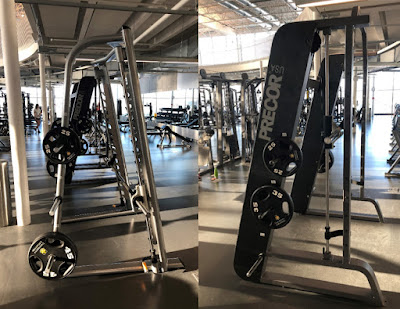Are you reaching your health and fitness goals?
by Adam Toffan, M.Sc, NSCA-CSCS, CSEP-CEP
Assistant Fitness Testing & Assessment Coordinator
Recreation Services, University of Manitoba
Many of us have careers or are pursuing a career of some sort. We hope to be an expert in a given field so we can help people and provide a service that people can’t do themselves. Some people have a variety of learned skills. I am not a mechanic, however, I can change a flat tire. Our bodies, like a car, are very complex machines. There is much more going on than anyone without directed study can understand fully.
Assistant Fitness Testing & Assessment Coordinator
Recreation Services, University of Manitoba
Many of us have careers or are pursuing a career of some sort. We hope to be an expert in a given field so we can help people and provide a service that people can’t do themselves. Some people have a variety of learned skills. I am not a mechanic, however, I can change a flat tire. Our bodies, like a car, are very complex machines. There is much more going on than anyone without directed study can understand fully.
Both of these things are so complex that you can’t even do
it justice with a photo because there are layers upon layers of interconnected
parts. Why do we think we can maintain our bodies without the help of a
professional when we would never dare to maintain our own vehicles? One issue
is people see car maintenance as an investment for long term function but they
see spending on their health as an expense. However, if you do not maintain
your body now, it will break down early just like your vehicle.
Personal trainers, strength and conditioning specialists and
exercise physiologists are the mechanics of the body for general maintenance
and other matters that don’t require a doctor. Exercise programs alone are more
complicated than many think. Exercise selection, order, technique and intensity
are some of the very important factors that determine if you are doing enough
to get the desired results. Unfortunately, unlike many professions, there is
some variability in qualifications. Each certification requires different
levels of education and has its own set of core competencies that the trainer needs
to master so there is some buyer beware and you should not assume that all
certifications are equal. The gold standard for personal training
certifications are those that require a university degree. Some examples of
these are personal trainer or exercise physiologist certifications from the
Canadian Society of Exercise Physiology (CSEP) or certified strength and
conditioning specialist certification from the National Strength and
Conditioning Association (NSCA).
A survey from Ask Your Target Market shows that 83% of
people who use personal training are satisfied with their purchase. People who
do make the decision to trust their bodies with a professional get improved
results and are overwhelmingly satisfied with their experience. For more
information from the survey you can click the following link to the results: http://tone2day.com/let-the-stats-speak-for-themselves-as-to-why-personal-training-gets-results/
How much personal training someone needs depends largely on
the person. Some people who have a good background in exercise can get by with
a few sessions to start a new program and the occasional check in. Others who
are not as comfortable with technique or progression strategies might need to
see someone more often. Some people use a trainer every workout, some once per
week, others once per month. If you want to invest in your health feel free to
ask a fitness attendant or customer service representative about the various
personal training packages and find the right one for you!






Weight loss truths keeps you updated with latest information on weight tips, exercises, books and diets apart from enhancing your acumen with in-depth knowledge of traditional weight loss stuff and issues.For more information visit Nutrition health services in birmingham
ReplyDelete